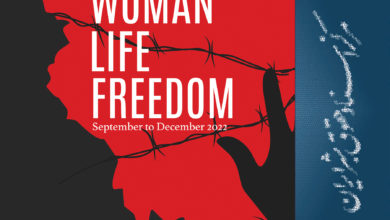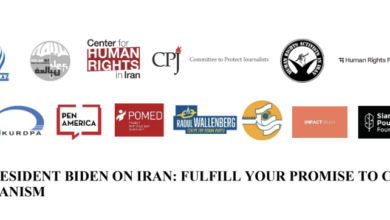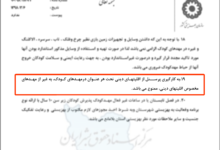Alleged Juvenile Offender at Risk of Imminent Execution
Salbehi was sentenced to death by Branch 5 of the Fars Province Criminal Court in 2010. Branch 14 of Iran’s Supreme Court upheld the sentence four months later. In 2013, however, the same branch of the Supreme Court reversed Salbehi’s death sentence after an extraordinary procedural review. In reaching this decision, the Supreme Court focused on Salbehi’s age at the time she had allegedly committed the crime. On remand, however, Salbehi was sentenced to death again by Branch 4 of the Fars Province Criminal Court. In its 2014 ruling, the Branch 4 rejected the defense’s arguments regarding Salbehi’s age at the time of the alleged commission of the crime. Under Shari’a law, the age of criminal responsibility for girls is nine lunar years, or eight years and nine months under a standard solar calendar. In reissuing Salbehi’s death sentence, the court disregarded a provision in Iran’s revised penal code suggesting that minors charged with capital offenses under Shari’a law should be evaluated by the medical examiner’s office to ensure that they are mentally mature. No such evaluation had taken place in Salbehi’s case. Instead the medical examiner’s office only certified that she was not insane.
Further appeals were rejected by Branch 14 of the Supreme Court, and the victim’s family refused to pardon Salbehi. Further details of Salbehi’s case are examined in IHRDC’s legal commentary, “Qisas: A Law for Injustice.” Now, six years after Salbehi’s arrest, sources report that this afternoon, without warning, authorities announced that she is to be executed within the next 24 hours.
“It is unconscionable to deny a minor access to an attorney, and to subsequently sentence her to death based on confessions extracted in interrogations during which she was not represented by counsel,” said Rod Sanjabi, IHRDC’s Executive Director. “The Islamic Republic of Iran continues its cynical disregard for its obligations under international human rights law unabated, and with unparalleled disdain for the basic human dignity of its own citizens.”
Under Article 6 of the International Covenant on Civil and Political Rights (ICCPR), to which Iran is a party, the execution of individuals who commit a capital offence when they are under the age of 18 is prohibited. Article 37 of the Convention on the Rights of the Child (CRC), to which Iran is also a signatory, likewise prohibits the use of capital punishment against individuals convicted of crimes committed before the age of 18. The Iranian government has flagrantly violated its CRC obligations since it signed the Convention, however, based on a general reservation stating that it reserves the right “not to apply any provisions or articles of the Convention that are incompatible with Islamic Laws.” In effect, this has rendered its ratification of the CRC meaningless. But the 1969 Vienna Convention on the Law of Treaties, to which Iran is also a signatory, prohibits reservations so vague as to be “incompatible with the object and purpose of the treaty.” Similarly, the fifty-ninth annual session of the International Law Commission in 2007 found that “it cannot be maintained that the effect of reservations could possibly be to prevent a treaty as a whole from producing its effects.” Furthermore, under Article 14 of the ICCPR, Iran is required to ensure that all individuals charged with a crime have adequate access to counsel. None of these guarantees were observed in Salbehi’s case.









